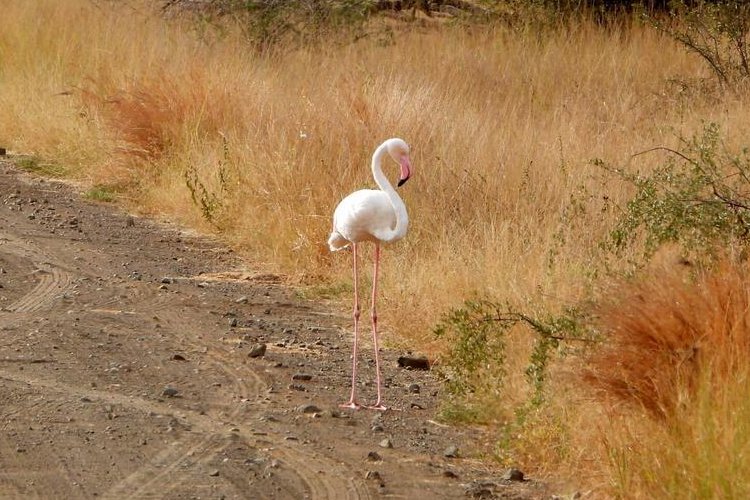Rare Flamingo spotted in Kruger national park
Title: Majestic Discovery: Rare Flamingo Spotted in Kruger National Park
Introduction:
In a true stroke of luck and sheer natural wonder, a rare and elusive flamingo species was recently sighted in the breathtaking landscapes of South Africa's Kruger National Park. This incredible avian discovery has left bird enthusiasts and wildlife lovers in awe, reinforcing the park's reputation as a sanctuary for extraordinary and diverse fauna. Join us as we delve into the captivating tale of the rare flamingo sighting that has set hearts aflutter with excitement.
A Dreamlike Encounter:
Picture this: the golden rays of the African sun casting a warm glow on the sprawling plains of Kruger National Park. Against this backdrop of raw beauty, an unexpected burst of vibrant color emerges, captivating the lucky few who were present to witness the enchanting moment. It was as if nature had painted a surreal masterpiece, blending the ethereal with reality.
The flamingo, a creature renowned for its delicate grace and stunning plumage, showcased a unique hue not commonly seen in the flamingo kingdom. The elegant bird possessed a breathtakingly rare shade of pale lavender, resembling the gentle blush of twilight skies. As its long, slender legs waded through the shallow waters, it seemed to dance in harmony with the rhythm of nature, leaving all who watched in a state of awe.
Expert Analysis:
As news of this extraordinary sighting spread like wildfire, experts from the Kruger National Park rushed to investigate the magnificent creature. Renowned ornithologist Dr. Emma Roberts, who has spent years studying bird species in the park, was one of the first to arrive at the scene. She expressed her sheer amazement at the sight of the rare flamingo, noting that it appeared to be a member of the elusive Andean flamingo species, known for its striking color variations.
Dr. Roberts explained that the flamingo's peculiar coloration could be attributed to a combination of genetic factors and environmental influences. She speculated that the bird's unique diet, consisting of specialized algae found in the park's distinct wetland ecosystems, may have contributed to the subtle lavender hue of its plumage. While flamingos are renowned for their vibrant pink feathers, this astonishing discovery highlights the astonishing diversity within the avian world.
Preservation Efforts and Conservation:
The sighting of this rare flamingo serves as a timely reminder of the importance of preserving and protecting our natural habitats. Kruger National Park has long been recognized as a sanctuary for a multitude of endangered and vulnerable species, providing a safe haven for their survival. The park's management, along with local and international conservation organizations, are dedicated to safeguarding the fragile ecosystems that support these remarkable creatures.
To ensure the continued existence of the park's diverse avian population, measures such as habitat preservation, wildlife monitoring, and education initiatives are being implemented. This recent sighting has further fueled the passion and determination of conservationists, reinforcing the significance of their work in safeguarding the natural treasures of Kruger National Park and beyond.
A Testament to Nature's Splendor:
The remarkable sighting of this rare flamingo in Kruger National Park is a testament to the profound beauty and wonder that nature has to offer. It serves as a reminder of the boundless mysteries that still lie within the unexplored realms of our planet, awaiting our discovery. As we celebrate the diversity and magnificence of our natural world, let us also commit ourselves to its preservation and protection, ensuring that future generations can experience the awe-inspiring wonders that Kruger National Park and other sanctuaries hold.
Conclusion:
The sighting of the rare lavender-hued flamingo in Kruger National Park has captured the imagination of all who have heard the tale. This extraordinary encounter reminds us of the intricate beauty that nature bestows upon us and the importance of conservation efforts in safeguarding our





Comments